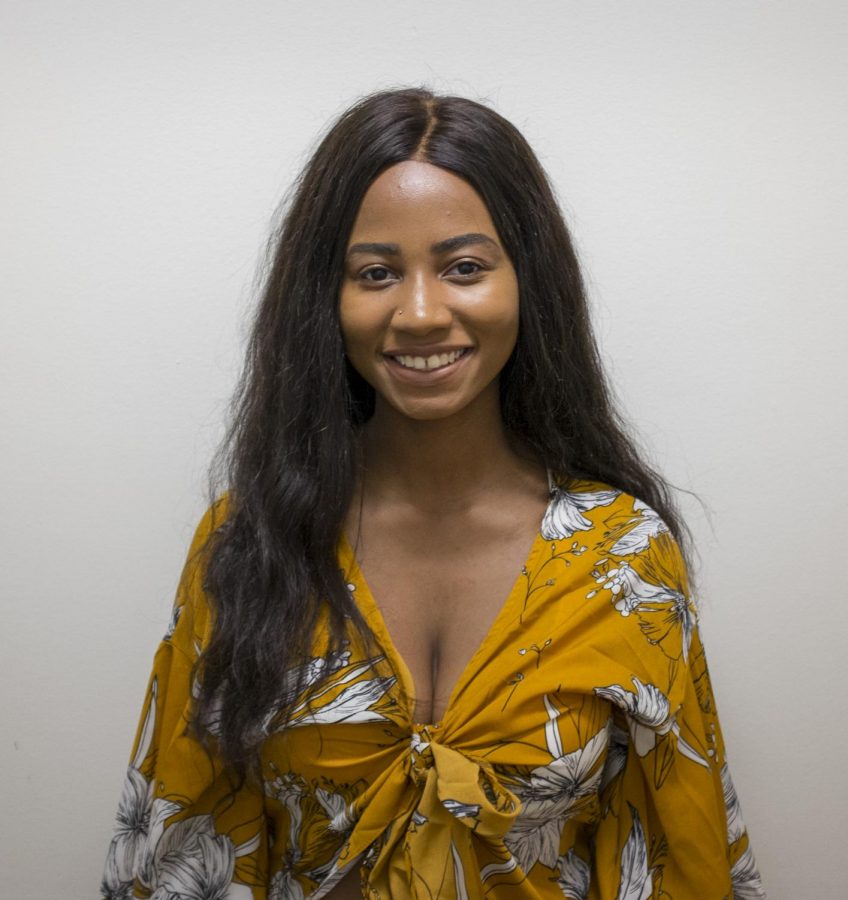For the past semester, I’ve had the honor to reach you on a biweekly basis through my column, “Identity of Love.” Most of my pieces have highlighted the negative, often overlooked experiences of women and non-binary people of color, ranging from fetishization to the need to stand in solidarity with the trans community. However, I have yet to dedicate a piece to the most important relationship each of us has: the one we have with ourselves.
For the sake of being inclusive, and to avoid any confusion, I’ll be referring to these groups as femmes.
Starting from a young age, femmes of color are disproportionately scrutinized when it comes to their self-worth. Take the interview from 1995 with a tweenaged Venus Williams that went viral a few months ago. After beating world records left and right from the age of 12, the 14-year-old Williams expresses confidence in her ability to win an upcoming match — and rightfully so. However, the reporter interviewing her, John McKenzie, continued to question her self-assurance, as if her accolades don’t speak for themselves. Thankfully, her father, Richard Williams, steps in and enlightens McKenzie on how to deal with the confidence of not only a child but also a black child: “You’re dealing with a little black kid, and let her be a kid. She done answered it with a lot of confidence, leave that alone.”
While McKenzie may not have intended to attack Williams’ ego, his attempt to invalidate a young yet accomplished black girl begs the question of how the perception of self-esteem is influenced by race. An observational study from 2011 showed that a person’s level of self-esteem does differ depending on race — however, it was black participants who had higher self-esteem than white participants in both adolescence and early adulthood.
Despite the surroundings, women of color have been able to mature with their own self-worth intact. More recently according to a joint survey conducted by Glamour and L’Oreal, women of color scored higher than white women when it came to questions regarding their perceptions of their own success and beauty, with black women scoring the highest. This is not to diminish the importance of encouraging women overall to believe in their worth — it’s more so to recognize that black women and women of color at large can celebrate themselves even while being targets of racial discrimination and prejudice. While we still have a long way to go — as there remains a huge discrepancy between the privileges afforded to cisgender, white men and virtually everyone else — it’s refreshing to see that a history laced with inequity has not broken our spirits.
So to my women of color, marginalized folk and readers: make sure to take care of your mind, body and soul. It is important to trust ourselves. Sometimes, that can mean taking space from people who disrupt your energy and voicing your physical discomfort. Nurture your physical and emotional self and treat both with equal attention.
As explored previously, there is a harmful misconception that it is OK to lay stressful and often emotionally draining burdens onto the backs of disenfranchised groups. But know that you are never obligated to help people unpack their racism, misogyny, transphobia or whatever else at the cost of your own health and self-care. We all have our own internalized sh-t to deconstruct, our own selves to take care of; it is no one’s job to correct another’s ignorance, especially when it puts one or more of their identities under attack.
For most of these columns, I’ve included the thoughts of people related to the topic I’m exploring, and this time is no different. I asked 10 people of color to give me one word that comes to mind when thinking about the intersectionality of their personal identities. This is what I received: divine, strong, brave, blessed, resilient, powerful, baddie, intense, beauty and love.
Thank you for reading.
Identity of Love is a column devoted to exploring the ups and downs of navigating love, sex and relationships for those whose narratives have historically been pushed to the margins.
Cheyenne Porcher is a sophomore in the Gallatin School of Individualized Study. Email Cheyenne at [email protected].
Opinions expressed on the editorial pages are not necessarily those of WSN, and our publication of opinions is not an endorsement of them.


























































































































































